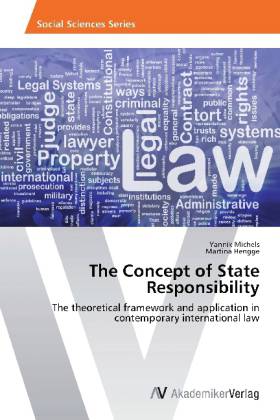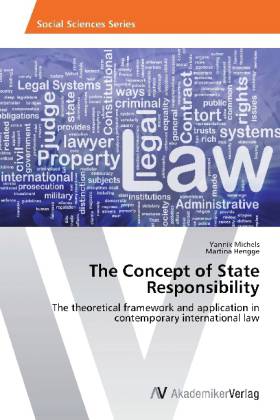
Bedankt voor het vertrouwen het afgelopen jaar! Om jou te bedanken bieden we GRATIS verzending (in België) aan op alles gedurende de hele maand januari.
- Afhalen na 1 uur in een winkel met voorraad
- In januari gratis thuislevering in België
- Ruim aanbod met 7 miljoen producten
Bedankt voor het vertrouwen het afgelopen jaar! Om jou te bedanken bieden we GRATIS verzending (in België) aan op alles gedurende de hele maand januari.
- Afhalen na 1 uur in een winkel met voorraad
- In januari gratis thuislevering in België
- Ruim aanbod met 7 miljoen producten
Zoeken
The Concept of State Responsibility
The theoretical framework and application in contemporary international law
Yannik Michels, Martina Hengge
Paperback | Engels
€ 71,95
+ 143 punten
Omschrijving
This book provides scholars and practitioners with a sound understanding of the theoretical framework of State responsibility in addition to various examples on how the concept is applied in contemporary jurisprudence. Firstly, the book expounds the sources of international law, the requirements necessary for State responsibility to be established and the circumstances which preclude wrongfulness. Moreover, it deals with the legal consequences that arise from a breach of international obligation and the treatment of aliens by foreign States. Secondly, the book provides an application of the legal framework by thoroughly analysing the Amoco International Finance Corp. case (1987). It offers a description of the parties, the contractual background to the case, and the course of events. Furthermore, the question of jurisdiction is dealt with and the claims of the parties as well as an in depth analysis of the adjudication. Additionally, the book presents some expert opinions on the case. Finally, this work examines the impact of the Amoco case on the ILC Articles and discusses both the contemporary relevance of the ILC Articles and the future of State responsibility.
Specificaties
Betrokkenen
- Auteur(s):
- Uitgeverij:
Inhoud
- Aantal bladzijden:
- 96
- Taal:
- Engels
Eigenschappen
- Productcode (EAN):
- 9783639461121
- Verschijningsdatum:
- 7/01/2013
- Uitvoering:
- Paperback
- Formaat:
- Trade paperback (VS)
- Afmetingen:
- 152 mm x 229 mm
- Gewicht:
- 149 g

Alleen bij Standaard Boekhandel
+ 143 punten op je klantenkaart van Standaard Boekhandel
Beoordelingen
We publiceren alleen reviews die voldoen aan de voorwaarden voor reviews. Bekijk onze voorwaarden voor reviews.









